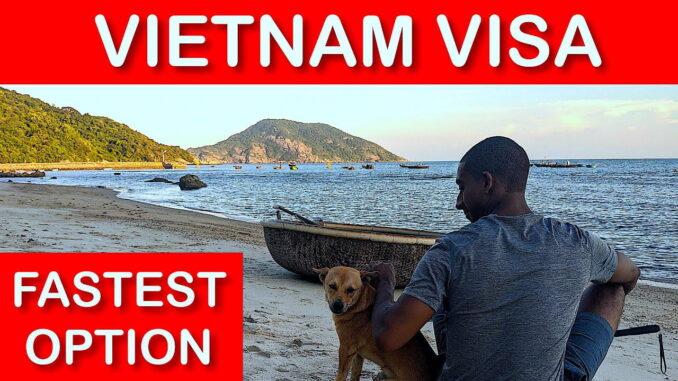
Organizing a vacation to Vietnam on weekends or holidays can be a thrilling opportunity to discover new cultures and embark on exciting adventures. Nevertheless, dealing with the complexities of visa regulations can also be overwhelming. It is essential to comprehend the intricacies of processing durations, qualifications, and potential repercussions of exceeding the permitted stay in order to have a stress-free trip. In this piece, we will explore the important factors and steps involved in acquiring a Vietnam Visa during weekends and holidays.
“Comprehending the Ramifications, Punishments, and Methods to Prevent Overstaying a Vietnam Visa”
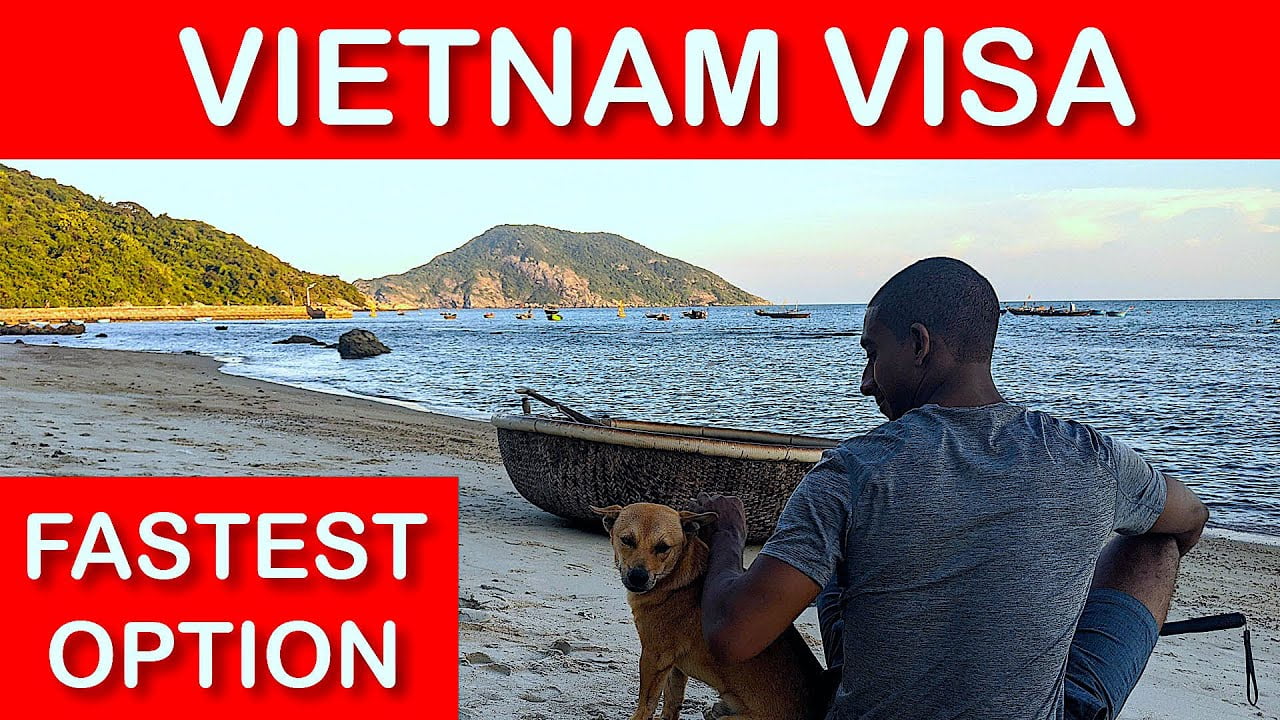
An overstay takes place when a non-native individual stays in Vietnam for a longer period than what is allowed according to their visa. This can occur due to different factors such as delayed flights, unexpected situations, or lack of knowledge about the visa’s expiry date. Nevertheless, exceeding the authorized stay can result in severe consequences, including penalties, imprisonment, and potentially being prohibited from returning. Let us examine these outcomes in more detail and ways to prevent them.
Fines
The penalty for exceeding the allotted time on a Vietnam visa is determined by the length of the overstay, with fines ranging from VND 200,000 to VND 3,000,000 per day. The fine increases as the duration of the overstay increases. For instance, a one-day overstay would result in a VND 200,000 fine, while a five-day overstay would incur a VND 1,000,000 fine. It should be noted that these penalties are subject to modification, therefore it is advisable to consult with the appropriate authorities for updated details.
Detention
In serious situations, individuals who overstay their authorized period of stay may be held in custody and face deportation proceedings. This can occur if the overstay is considered deliberate or if the person has a record of overstaying. Being detained can cause significant disruptions to travel plans and may also result in extra costs. It is crucial to comply with the designated timeframe of stay to prevent these potential repercussions.
Ban from Re-entry
Individuals who have committed multiple offenses may be subject to a temporary or permanent prohibition from returning to Vietnam. This can greatly impact their future travel arrangements and also hinder their chances of securing employment in the country. It is essential to recognize the consequences of overstaying and take necessary measures to prevent any potential bans.
To avoid overstaying your Vietnam visa, it’s crucial to:
- Check visa validity: Carefully review your visa’s expiration date and ensure you depart Vietnam before that date.
- Plan your itinerary: Plan your trip carefully to avoid exceeding the authorized period of stay. Consider factors such as flight delays, unforeseen circumstances, and the duration of your intended stay.
- Apply for an extension: If unforeseen circumstances arise, consider applying for a visa extension before the expiration date. This will help you avoid overstaying and any associated consequences.
Navigating Vietnam Visa Work Permit Requirements: Eligibility, Application Process, and Renewal Guidelines
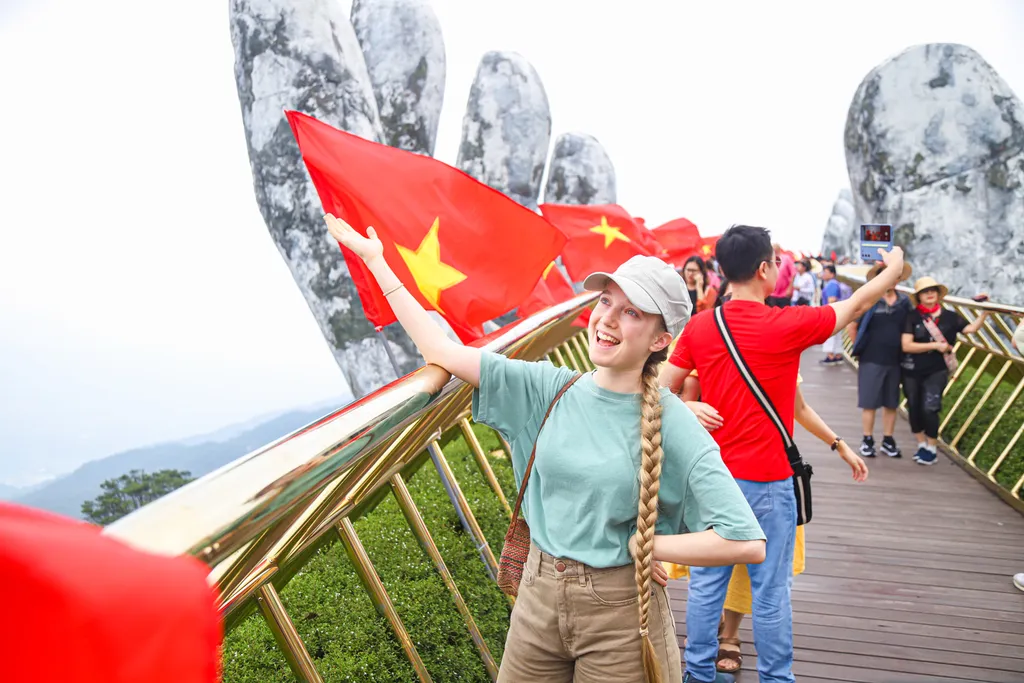
If you’re planning to work in Vietnam during weekends or holidays, you will need a work permit in addition to a visa. The process of obtaining a work permit can be complex, so it’s essential to understand the eligibility criteria, application process, and renewal guidelines.
Eligibility Criteria
To be eligible for a work permit in Vietnam, you must meet the following requirements:
- Be at least 18 years old
- Have a valid passport with at least six months’ validity remaining
- Have a job offer from a company registered in Vietnam
- Meet the required qualifications and experience for the job
- Pass a medical examination
- Have a clean criminal record
- Obtain a work permit exemption certificate (if applicable)
Application Process
The application process for a work permit in Vietnam involves several steps, including:
- Obtaining a work permit exemption certificate (if applicable)
- Applying for a work permit at the Department of Labor, Invalids and Social Affairs (DOLISA) in the province where you will be working
- Obtaining a work permit approval from the Ministry of Labor, Invalids and Social Affairs (MOLISA)
- Applying for a work permit card at the Immigration Department within 90 days of receiving the work permit approval
It’s important to note that the application process may vary slightly depending on the specific requirements of each province.
Renewal Guidelines
Work permits in Vietnam are valid for a maximum of two years and can be renewed for up to two additional years. To renew your work permit, you must apply at least 15 days before the expiration date and meet the following criteria:
- Continue to meet the eligibility criteria
- Have a valid employment contract with a company registered in Vietnam
- Have a clean criminal record
- Pass a medical examination
Demystifying Vietnam Visa Overstay Fines: Calculation, Payment Options, and Potential Mitigation Strategies
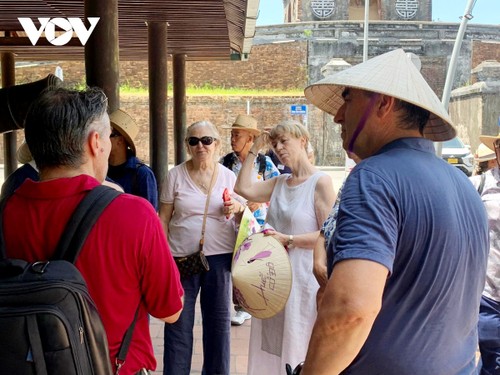
If you have overstayed your Vietnam visa, it’s essential to understand the fines, payment options, and potential mitigation strategies to avoid any further consequences.
Calculation of Fines
As mentioned earlier, the amount of fine for overstaying a Vietnam visa depends on the duration of the overstay. The calculation is as follows:
- VND 200,000 per day for an overstay of less than 10 days
- VND 500,000 per day for an overstay of 10 to 30 days
- VND 1,000,000 per day for an overstay of 31 to 60 days
- VND 2,000,000 per day for an overstay of 61 to 90 days
- VND 3,000,000 per day for an overstay of more than 90 days
Payment Options
Overstayers can pay the fines at the Immigration Department or at the airport before departure. It’s important to note that only cash payments are accepted, and the amount must be paid in Vietnamese Dong.
Mitigation Strategies
If you have overstayed your Vietnam visa due to unforeseen circumstances, there are a few potential mitigation strategies that you can consider:
- Apply for a visa extension: As mentioned earlier, if you foresee an overstay, it’s best to apply for a visa extension before the expiration date.
- Seek assistance from your embassy: In some cases, your embassy may be able to assist you in resolving the overstay issue.
- Consult with a local lawyer: If you face any legal issues due to the overstay, it’s advisable to seek advice from a local lawyer who can guide you through the process.
Planning Your Trip: Essential Guide to Vietnam Holiday Calendar and Visa Considerations
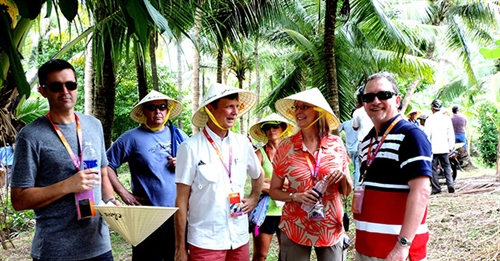
Prior to organizing your vacation to Vietnam on weekends or during holidays, it is essential to have a grasp of the country’s holiday schedule and its potential impact on the duration of visa processing.
Vietnam Holidays Calendar
Vietnam has a rich culture and history, and its holidays reflect this. Here are some of the most important holidays in Vietnam:
- New Year’s Day (January 1): This is a national holiday in Vietnam, and it is celebrated with fireworks, parades, and parties.
- Lunar New Year (Tết): This is the most important holiday in Vietnam, and it is celebrated for three days. Families come together to celebrate, and there is a lot of food, music, and dancing.
- Hùng Kings’ Festival (April 29): This festival commemorates the legendary Hùng Kings, who are considered the founders of Vietnam. There are many ceremonies and celebrations held throughout the country.
- Reunification Day (April 30): This holiday celebrates the reunification of North and South Vietnam in 1975. There are parades and fireworks across the country.
- International Labor Day (May 1): This is a national holiday in Vietnam, and it is celebrated with parades, rallies, and parties.
- Independence Day (September 2): This holiday celebrates the declaration of independence from France in 1945. There are parades and fireworks across the country.
In addition to these national holidays, there are many regional and local festivals held throughout the year. These festivals celebrate everything from harvest time to the local patron saint.
Here are some tips for planning your trip to Vietnam:
- The best time to visit Vietnam is during the dry season, which is from November to April.
- Be sure to bargain when shopping at markets.
- Learn a few basic Vietnamese phrases.
- Be prepared for the heat and humidity.
- Eat as much street food as possible! It’s delicious and affordable.
- Tipping is not expected in Vietnam.
- Pack light and loose-fitting clothing.
- Be respectful of local customs and traditions.
Visa Processing Schedule
The duration of visa processing may also be influenced by the holiday schedule. For instance, if you submit your visa application during a holiday season, it could result in a longer processing time. It is recommended to carefully plan your travel and visa application to prevent any potential delays.
Weekends and Holidays in Vietnam: Visa Processing Schedule and Implications for Travelers
In addition to public holidays, weekends can also impact visa processing times in Vietnam. Here’s a breakdown of the visa processing schedule:
- Monday to Friday: Visa applications are processed during regular working hours.
- Saturday and Sunday: Visa applications are not processed on weekends.
- Public holidays: Visa applications are not processed on public holidays.
It’s essential to factor in these processing times when planning your trip to Vietnam during weekends or holidays.
Overstaying Your Vietnam Visa: Understanding the Risks and Potential Consequences
Overstaying your Vietnam visa can have serious consequences, including fines, detention, and a ban from re-entry. It’s crucial to adhere to the authorized period of stay and take necessary precautions to avoid any potential risks.
Securing a Vietnam Visa Work Permit: Eligibility Criteria, Application Process, and Renewal Guidelines
If you’re planning to work in Vietnam during weekends or holidays, it’s important to understand the requirements and process for obtaining a work permit. This will ensure that you have all the necessary documents and approvals before starting your job.
Eligibility Criteria
To be eligible for a work permit in Vietnam, you must meet the following criteria:
- Be at least 18 years old
- Have a valid passport with at least six months’ validity remaining
- Have a job offer from a company registered in Vietnam
- Meet the required qualifications and experience for the job
- Pass a medical examination
- Have a clean criminal record
- Obtain a work permit exemption certificate (if applicable)
Application Process
The application process for a work permit involves several steps, including obtaining a work permit exemption certificate (if applicable), applying for a work permit at the Department of Labor, Invalids and Social Affairs (DOLISA), obtaining a work permit approval from the Ministry of Labor, Invalids and Social Affairs (MOLISA), and applying for a work permit card at the Immigration Department.
Renewal Guidelines
Work permits in Vietnam are valid for a maximum of two years and can be renewed for up to two additional years. To renew your work permit, you must apply at least 15 days before the expiration date and meet the following criteria:
- Continue to meet the eligibility criteria
- Have a valid employment contract with a company registered in Vietnam
- Have a clean criminal record
- Pass a medical examination
Facing Vietnam Visa Overstay Fines: Calculation, Payment Options, and Strategies for Mitigation
If you have overstayed your Vietnam visa, it’s essential to understand the fines, payment options, and potential mitigation strategies to avoid any further consequences.
Calculation of Fines
The amount of fine for overstaying a Vietnam visa depends on the duration of the overstay. The calculation is as follows:
- VND 200,000 per day for an overstay of less than 10 days
- VND 500,000 per day for an overstay of 10 to 30 days
- VND 1,000,000 per day for an overstay of 31 to 60 days
- VND 2,000,000 per day for an overstay of 61 to 90 days
- VND 3,000,000 per day for an overstay of more than 90 days
Payment Options
Overstayers can pay the fines at the Immigration Department or at the airport before departure. It’s important to note that only cash payments are accepted, and the amount must be paid in Vietnamese Dong.
Mitigation Strategies
If you have overstayed your Vietnam visa due to unforeseen circumstances, there are a few potential mitigation strategies that you can consider:
- Apply for a visa extension: As mentioned earlier, if you foresee an overstay, it’s best to apply for a visa extension before the expiration date.
- Seek assistance from your embassy: In some cases, your embassy may be able to assist you in resolving the overstay issue.
- Consult with a local lawyer: If you face any legal issues due to the overstay, it’s advisable to seek advice from a local lawyer who can guide you through the process.
Optimizing Your Vietnam Travel Experience: Aligning Vacation Plans with Visa Requirements and Holiday Calendar
To ensure a smooth and hassle-free travel experience to Vietnam during weekends or holidays, it’s crucial to align your vacation plans with visa requirements and the holiday calendar. Here are a few tips to help you optimize your trip:
- Plan your trip well in advance: This will give you enough time to research visa requirements, apply for a visa, and plan your itinerary accordingly.
- Check the holiday calendar: Be aware of public holidays and weekends when planning your trip and visa application.
- Consider applying for a visa extension: If you foresee an overstay due to unforeseen circumstances, consider applying for a visa extension before the expiration date.
Vietnam Visa during Weekends and Holidays QAs
Q: Can I get a Vietnam visa during weekends and holidays?
A: Yes, it is possible to get a Vietnam visa on weekends and holidays. However, the process is more expensive and may take longer than applying for a visa during regular business hours.
Q: How much does it cost to get a Vietnam visa during weekends and holidays?
A: The cost of a Vietnam visa on weekends and holidays varies depending on the type of visa you need and the processing time. However, you can expect to pay an additional fee of around $50-$100 USD for rush processing.
Q: How long does it take to get a Vietnam visa during weekends and holidays?
A: The processing time for a Vietnam visa on weekends and holidays is typically 2-4 hours. However, it is important to note that this is just an estimate and the actual processing time may vary depending on the workload of the immigration department.
Q: How can I apply for a Vietnam visa during weekends and holidays?
A: There are two ways to apply for a Vietnam visa on weekends and holidays:
- Emergency visa processing: This is the fastest way to get a Vietnam Visa during weekends and holidays. However, it is also the most expensive. To apply for emergency visa processing, you will need to contact a visa agent who can provide you with a visa approval letter. You will then need to take this letter to the immigration counter at the airport when you arrive in Vietnam.
- E-visa: E-visas are a slower and cheaper option than emergency visa processing. However, they are not available for all nationalities. To apply for an e-visa, you will need to create an account on the website of the Vietnam Immigration Department and then fill out an online application form. You will then need to upload a scan of your passport and pay the visa fee. Once your application has been approved, you will be able to download your e-visa.
Q: What are the eligibility requirements for a Vietnam visa on weekends and holidays?
A: The eligibility requirements for a Vietnam visa on weekends and holidays are the same as the eligibility requirements for a visa during regular business hours. This means that you must be a citizen of a country that is eligible for a Vietnam visa and you must have a valid passport.
Q: What are some tips for applying for a Vietnam visa on weekends and holidays?
- Apply for your visa as early as possible. This will give you more time to process your application and reduce the risk of delays.
- Have all of your documentation ready before you start your application. This will help to speed up the process.
- Be prepared to pay an additional fee for rush processing.
- Make sure that you have a valid passport with at least six months of validity remaining.
- Print out a copy of your visa approval letter or e-visa.
Conclusion
Trying to figure out the Vietnam Visa during weekends and holidays can be daunting. Yet, having a grasp of the important factors and steps involved, as well as the possible repercussions of staying longer than permitted, can guarantee a stress-free and enjoyable journey. It is crucial to comply with the designated duration of stay, carefully plan your trip, and seek guidance from appropriate authorities if necessary. By adequately preparing and being informed, you can fully enjoy your visit to Vietnam and make lasting memories.
Supporting for Vietnam Visa during Weekends and Holidays
Tel: +1(972)-666-0676 – Tel: (+84) 968 18 77 18
WhatsApp: +84 968 18 77 18
Email: [email protected]
Website: https://visaonlinevietnam.com

How can he obtain student VISA(RMIT student)?
What documents need?